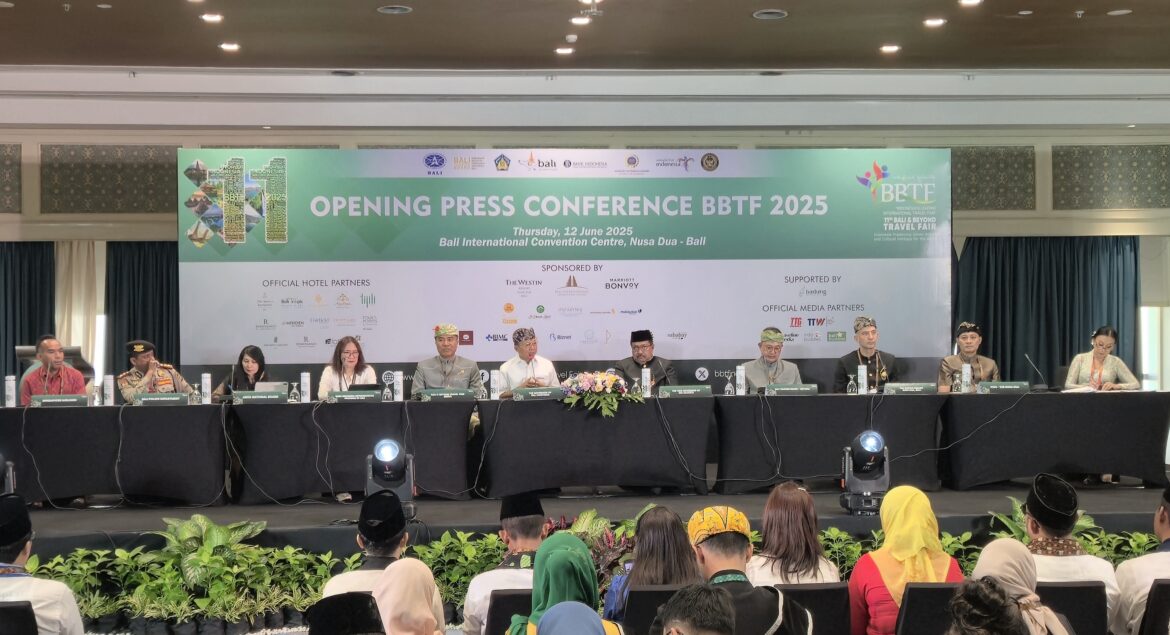BALI, ULTIMOPAARDISO.COM – The Provincial Governments of Bali and DKI Jakarta reaffirmed their joint commitment today to fostering promising tourism growth through integrated policies, strategic collaboration, and strict oversight—particularly in addressing waste management, traffic congestion, and the increasing movement of international tourists.
Bali Governor Wayan Koster stated that Bali is taking firm action through the Bali Clean from Waste Movement, as outlined in Gubernatorial Circular No. 9 of 2025. Effective since April 11, 2025, and launched in collaboration with the Minister of Environment, the regulation focuses on managing waste at the source and banning single-use plastic packaging smaller than one liter.
“All sectors—from local governments and customary villages to tourism businesses, schools, markets, and places of worship—are required to comply with this policy. Our goal is to achieve a waste-free Bali within the next two years,” said Koster.
To address traffic issues, Bali has implemented a new traffic scheme, adjusted school and office operating hours, and restricted daytime freight transport. Planning is also underway for new underpasses in Denpasar and Badung—funded by 10% of hotel and restaurant tax revenues from the wealthiest districts—with construction set to begin next year and completion targeted before 2029. The Dewata Vehicle fleet has resumed operations through inter-district cooperation, and Bali is exploring future rail-based transport options.
Bali has also intensified enforcement against misbehaving tourists. Over 400 foreigners have been deported by the joint police and immigration task force to ensure safety, comfort, and peace within Bali’s tourism sector.
“We welcome the increase in international arrivals, which averaged 20,309 visitors per day in April 2025. Regional tax revenue has also seen significant growth—Badung leading with IDR 5.9 trillion as of December 2024, followed by Denpasar with IDR 1.4 trillion and Gianyar with IDR 1.3 trillion—highlighting the positive impact of our recovery policies and infrastructure investment,” he added.
Koster emphasized the strategic role of the Bali & Beyond Travel Fair (BBTF) as a platform connecting industry players, government agencies, and global buyers. Through BBTF, Bali hopes to deepen strategic collaboration with Jakarta, particularly by leveraging Jakarta’s state-owned enterprises in transportation and unused regional budget (silpa), as well as negotiating joint airline routes and flight frequencies.
“With synergy among all levels of government, tourism stakeholders, and global airline partners, we aim to achieve a cleaner environment, smoother mobility, and improved access—ensuring Bali remains a world-class destination.”
Jakarta Deputy Governor Rano Karno confirmed the capital’s readiness to collaborate with Bali, noting that DKI Jakarta’s budget surplus of nearly IDR 4.8 trillion and the support of three key state-owned companies—Bank DKI (soon to become Bank of Jakarta), MRT Jakarta, and TransJakarta—can be channeled to enhance connectivity and travel flow.
“Out of 9.5 million domestic visitors to Bali, 6 million are from Jakarta. This partnership is expected to restore the balance of travel flow and optimize regional revenue,” Rano said.
As part of revitalization efforts, 10 hotels in Jakarta are now required to showcase Betawi culture. The city is also establishing a Jakarta Film Commission and launching the concept of Jakarta Cinema City to attract film talents and investors, capitalizing on the national film industry’s 84 million viewers in 2024. Jakarta has also expanded its “Public Transport Wednesday” policy, requiring civil servants to use public transportation midweek to reduce reliance on private vehicles.
Putu Winastra, Chair of BBTF 2025 Organizing Committee, highlighted BBTF’s evolving impact:
“BBTF creates deeper, longer-lasting connections between tourism products and destinations. It allows participants to experience destinations firsthand—far beyond the limitations of an exhibition booth. More than that, BBTF has demonstrated its global reach and impact, rooted in Bali’s unique cultural spirit, with a national focus that extends beyond the island.”
Ida Bagus Partha Adnyana, Chairman of the Bali Tourism Board, emphasized the central role of ASITA in Indonesia’s tourism industry.
“ASITA is the kitchen of the tourism industry—welcoming guests, preparing every travel need, and managing the end-to-end experience. As the frontliner of tourism, ASITA is irreplaceable. Under the Bali Tourism Board, we ensure no other association organizes similar events here. We are committed to strengthening ASITA’s presence in Bali and elevating service quality and industry collaboration nationwide,” said Ida Bagus Partha Adnyana. ***


